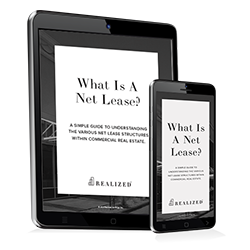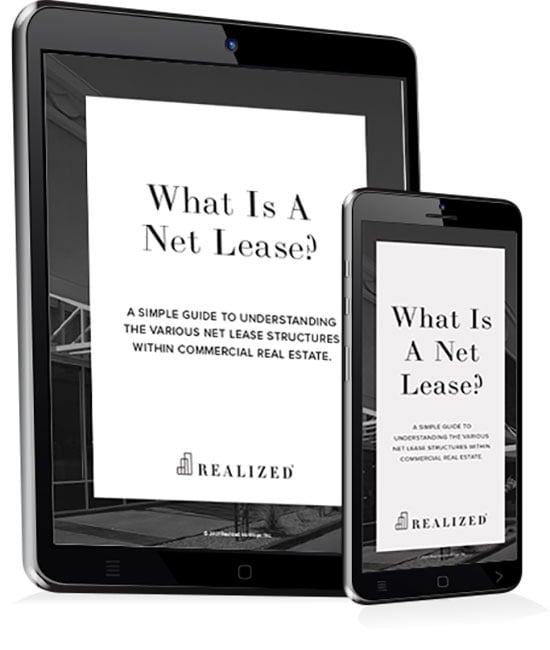
There can be two benefits to investing in real estate properties. The first is potential cash flow generated by rents. The second is the possible increase in value, known as real estate appreciation. Property appreciation means you could generate a profit—or capital gain—when you sell the asset.
So, when it comes to the question as to whether triple net (NNN) properties appreciate, the answer is, they likely could, in line with the potential of most real estate properties held for trade or investment. Perhaps a better issue to consider are the factors that can help drive NNN property appreciation and value—or lead to a decrease in the same.
Cap Rates
Many real estate investors use a property’s capitalization rate to determine asset appreciation. To find a cap rate, divide a property’s net operating income by the current market value. While the general rule of thumb is that a lower cap rate correlates to a higher property value, you should also consider the tenant, location, property purpose, and other factors. An NNN property containing banking operations might have a higher cap rate than, say, that of a nail salon. But that capitalization metric doesn’t mean much unless it’s compared to net-lease properties with similar purposes or functions.
Tenant
The appeal of net lease properties for many investors is that the tenant shoulders many, if not all, of the property’s various costs. Yes, a national tenant with a high-level profile would be a great option to fill your property. But this isn’t always necessary. Regional or local occupiers can be ideal tenants, as long as they offer 1) a strong credit profile and 2) established business experience. Also, remember that longevity counts: The longer the tenant operates in the space (and the more rent paid over time), the more potential for a property value increase.
Location
The real estate adage of “location, location, location” is definitely appropriate for NNN lease properties. But not all properties benefit from the same locations. The right site depends on the tenants’ products or services. The right location can also have an impact on property values.
For example, a retail pharmacy can benefit from a spot with a high amount of foot traffic and a corner location, whereas a quick-service restaurant or bank could be more successful on a retail pad in the corner of an active shopping center. Gas stations and accompanying retail might have success on busy streets, highways, and at interstate exits.
Market/Geographic Factors
Just as important as a property’s location are the specific market issues that could impact that asset. These generally include demographics and psychographics, competition, municipal/county zoning and business policies, capital market access, inflation factors, and area economics. And not all successful NNN properties need to be in high-growth markets. Certain brands of dollar stores can do well in rural areas; in many cases, they’re the only retail bricks-and-mortar that operate in those locations. This, in turn, can help boost property appreciation.
Dark Space/Dark Value
Dark space is real estate that the tenant vacates but still has responsibility for rent payments until the lease runs out. Though rent is still being paid, a property that falls back to its “dark value” is one that could decrease in value. Part of the reason is that there are still costs—even if rent is being paid, you might be on the hook for property taxes and maintenance. Additionally, if that space is specialized, it could be harder to find a new tenant, which could also exert downward pressure on any asset appreciation.
The point here is that there are a lot of articles and information extolling the virtues of NNN lease properties as great investments and assets that appreciate. But the factors that drive these properties’ value appreciation involve more than the fact that they operate on triple-net leases. Other issues need to be carefully analyzed and considered, along with careful and in-depth due diligence.
This material is for general information and educational purposes only. Information is based on data gathered from what we believe are reliable sources. It is not guaranteed as to accuracy, does not purport to be complete and is not intended to be used as a primary basis for investment decisions. It should also not be construed as advice, meeting the particular investment needs of any investor. Realized does not provide tax or legal advice. This material is not a substitute for seeking the advice of a qualified professional for your individual situation. All real estate investments have the potential to lose value during the life of the investment. All financed real estate investments have the potential for foreclosure. Programs that depend on tenants for their revenue or income may suffer adverse consequences as a result of any financial difficulties, bankruptcies or insolvency of their tenants.



